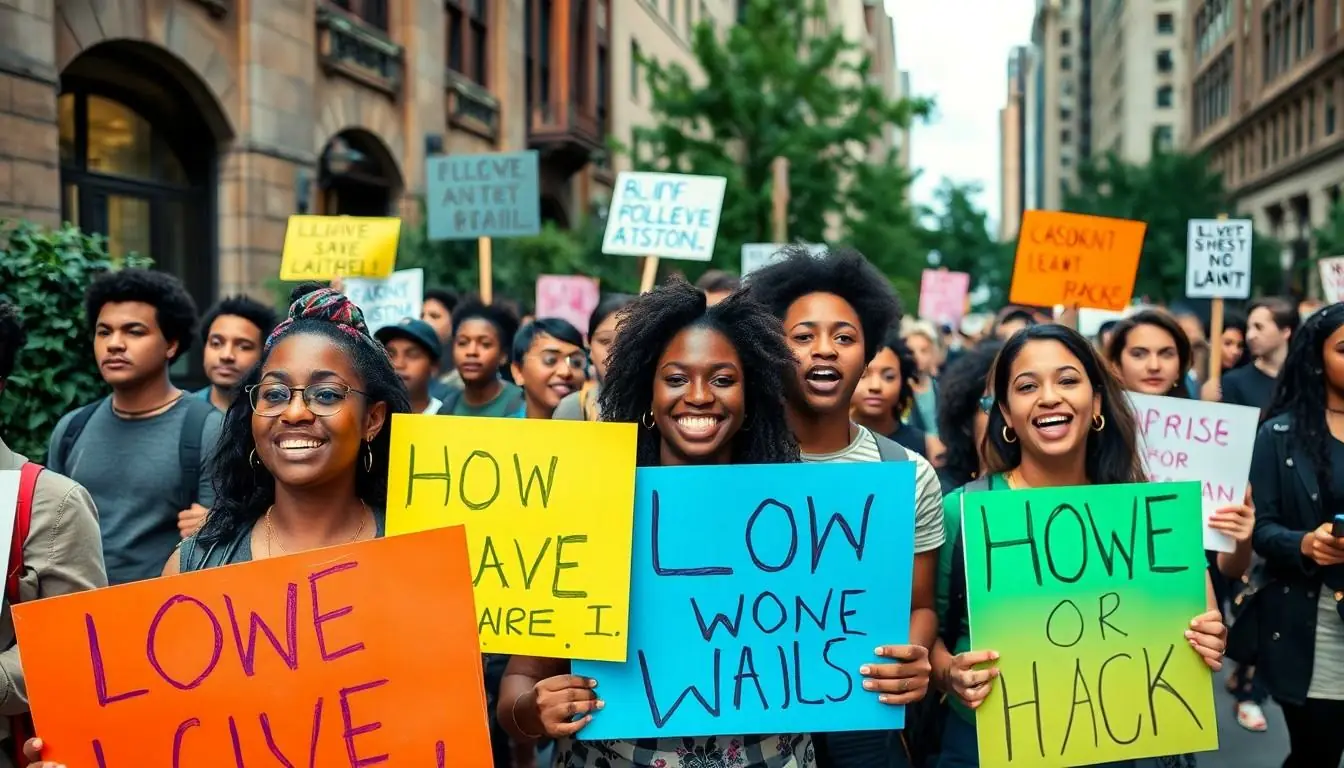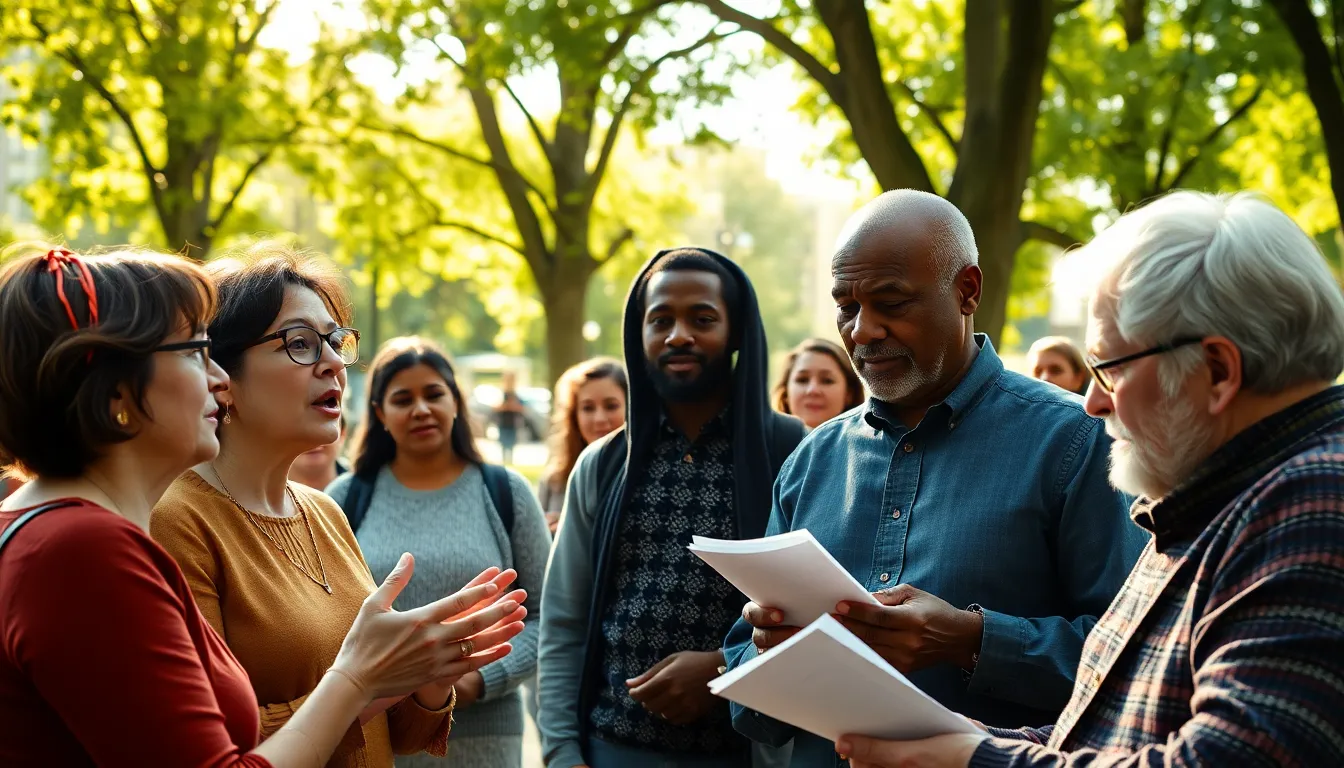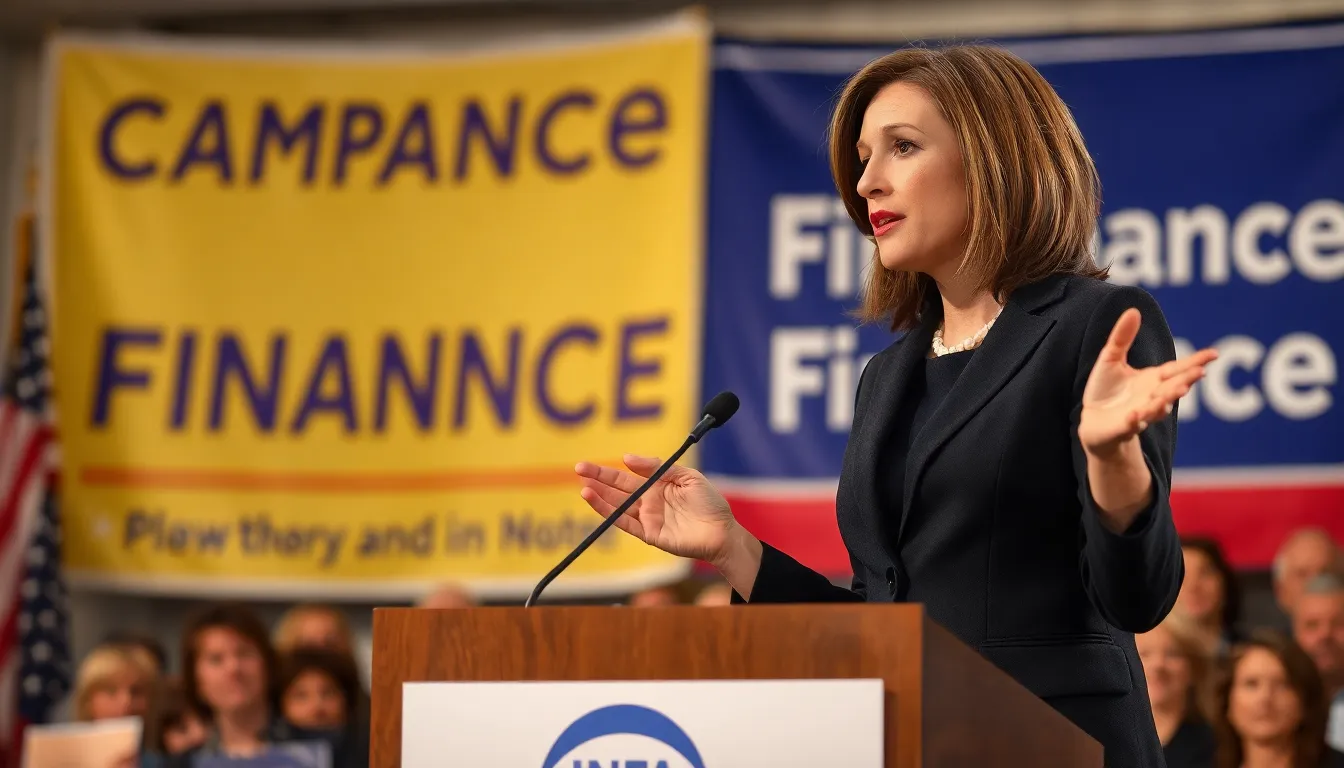Political action isn’t just a fancy term tossed around in debates or the latest Twitter storm. It’s the heartbeat of democracy and the driving force behind societal change. Whether it’s rallying for a cause or casting a vote, political action empowers individuals to shape their communities and influence decision-makers.
Table of Contents
ToggleUnderstanding Political Action Definition
Political action represents activities aimed at influencing governance or advocating for societal change. It encompasses a range of efforts, from grassroots organizing to engaging with policymakers.
Historical Context
Political action has deep roots in democratic societies. Ancient Greece showcased citizen involvement in governance through assemblies. The American Revolution exemplified political action aimed at securing independence. Movements for civil rights, women’s suffrage, and labor rights signify critical points in U.S. history where collective action reshaped policies. These events highlight the significance of organized efforts to challenge the status quo and advance societal goals. Historical instances serve as reminders of the power individuals hold when they unite for a common cause.
Contemporary Relevance
Political action remains vital in today’s society. Current events, such as climate change protests and marches for social justice, illustrate this concept effectively. Engaging communities facilitates awareness around pressing issues. Activism through online platforms has transformed political landscape, creating a space for diverse voices. Voter mobilization campaigns lead to higher participation rates during elections. Understanding political action encourages individuals to participate actively in democratic processes and advocate for meaningful change. Informed citizens drive progress toward more equitable and just societies.
Types of Political Action
Political action can take various forms, each playing a crucial role in shaping governance and societal change. Understanding these types helps individuals engage more effectively in democratic processes.
Individual Actions
Individual actions empower citizens to express their opinions and influence governance. Voting stands as a primary example, allowing people to choose representatives and decide on policies. Advocacy efforts, like writing letters to elected officials, enable individuals to voice concerns about specific issues. Additionally, participating in public comment periods for local decisions helps shape community outcomes. Engaging in social media discussions raises awareness of critical topics, fostering broader conversations on governance. Each action contributes uniquely to the political landscape, highlighting the importance of individual engagement.
Collective Actions
Collective actions amplify voices for change, mobilizing groups to advocate for common goals. Protests and demonstrations serve as powerful tools, showcasing public support for issues like climate action and civil rights. Grassroots organizing fosters community involvement, encouraging individuals to connect and collaborate. Joining interest groups or political parties enables people to work within structured frameworks to influence policy. Coalition-building enhances impact by bringing together diverse perspectives and resources. Through collective actions, individuals experience the strength of unity, increasing their effectiveness in advocating for change.
The Importance of Political Action
Political action plays a critical role in shaping society and influencing governance. Through various activities, individuals and groups can drive change and promote their concerns.
Societal Impact
Political action fosters community engagement and raises awareness of important issues. Efforts such as public protests and social justice marches mobilize collective efforts. Historical movements, like the civil rights movement, have shown how societal action can lead to significant advancements in equality. In today’s world, climate activism highlights urgent global challenges. Individuals participating in these actions help create a culture of accountability, encouraging others to join the conversation. Through grassroots initiatives, people find a shared purpose, cultivating a sense of community.
Policy Change
Policy change emerges from sustained political action and grassroots efforts. Advocacy groups often focus on specific issues, influencing legislators to enact reforms. Historical examples, such as women’s suffrage, demonstrate how consistent mobilization can lead to changes in laws and policy frameworks. In contemporary settings, various campaigns aim to address pressing matters like health care reform and environmental protections. Engaging with policymakers provides necessary insights into public sentiment, promoting responsiveness among elected officials. When citizens demand change, it fosters a political climate conducive to progress.
Challenges to Political Action
Political action faces several challenges that can hinder effective participation and influence. Understanding these obstacles can enhance engagement in democratic processes.
Barriers to Participation
Barriers to participation manifest in various forms. Economic factors play a significant role; individuals working multiple jobs may lack the time to engage in political activities. Additionally, geographic isolation can limit access to political events and resources. Political apathy results from disillusionment with existing systems, causing citizens to abstain from participation. Cultural factors also influence involvement; individuals from marginalized communities may feel excluded from political discourse. Education disparities contribute to a lack of understanding of political systems, diminishing confidence in engaging. Addressing these barriers requires targeted initiatives that promote inclusion and accessibility in political processes.
Misinterpretation of Political Action
Misinterpretation of political action can dilute its effectiveness. Often, individuals conflate political action with radical measures, fostering fear and resistance. Many view engagement solely as protests or rallies, neglecting other forms of advocacy, such as lobbying or community organizing. This narrow perspective minimizes the diversity of methods available for influence. Furthermore, misunderstandings about the costs involved—both financially and in terms of time—can dissuade people from participating. Misinterpretations often stem from media portrayals that skew public perception of political movements. Broadening the understanding of political action encourages a more inclusive and effective participation landscape.
Political action is essential for a thriving democracy and societal progress. It empowers individuals and communities to voice their concerns and advocate for change. By participating in various forms of political action, citizens can influence governance and drive meaningful reforms. The ongoing evolution of activism—especially with the rise of digital platforms—ensures that diverse perspectives are represented in the political arena.
Fostering an inclusive environment for political engagement is crucial. Addressing barriers to participation can enhance the effectiveness of collective efforts. As individuals become more aware of their power to impact policies, they can contribute to a more equitable society. Embracing the full spectrum of political action is vital for addressing today’s pressing issues and shaping a better future for all.



